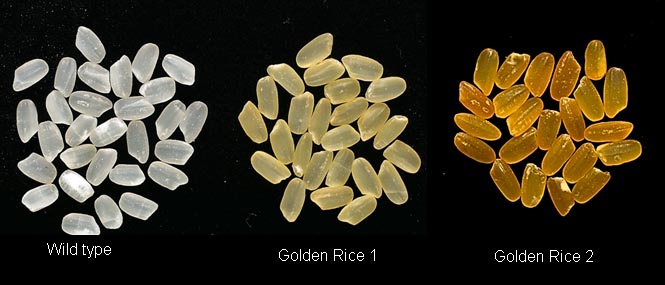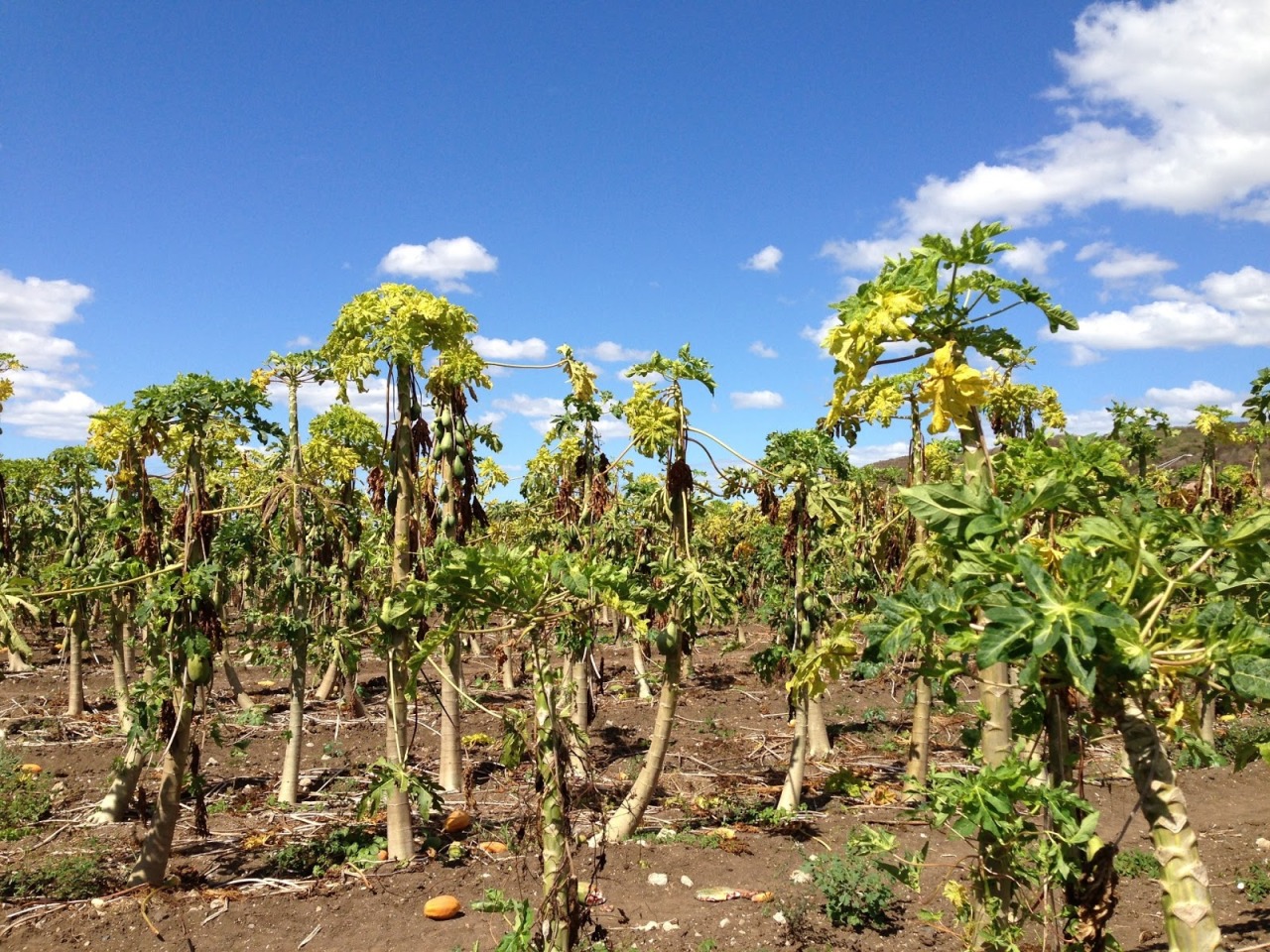ALL AGAINST
THE GENETIC TECHNOLOGY
"Genetically
engineered foods have a bad reputation. Activists are fighting such projects
around the world, although they could be used to combat poverty. It's fair?
Scientists who develop genetically
engineered foods are not labeled as heroes. Even though they aspire to a better
world. For example, the German biologist Ingo Potrycus, who had to investigate
in a bombproof greenhouse to develop a rice able to eradicate vitamin A
deficiency in children. According to the World Health Organization, 124 million
children do not receive adequate amounts of this vitamin and each year one or
two million die from it. And this is right there that intervenes the Golden
Rice.
Picture: http://www.goldenrice.org/image/how_GR2.jpg
A long, hard
road
In the Occident, vitamin A is
consumed through dairy products or beta-carotene. Rice lacks this yellow
pigment, but it is present in the leaves of the plant. So Ingo Potrycus found a
way to produce a rich in beta-carotene rice, modifying the genetics of the
plant and, finally in 1999, after years of hard work, grains rich in vitamin A
were born. Yellow rice seemed the perfect solution and it was decided to
distribute seeds among developing countries. However, for legal patent disputes
and activist protests, Golden Rice has not still been successful to enter the
market.
Greenpeace claimed that the product
was not finished and could contaminate other rice, could affect neighboring
fields and possibly was not even fit for consumption. According to the
environmental organization, it was a "Trojan Horse" to open the door
and allow entry of other genetically modified organisms. Greenpeace argued
that, rather than promoting that action, it should be fought for access to food
and organic farming. But even its former director, Stephen Tindale, says he has
changed his mind about genetically modified plants. For him, the rejection is
morally unacceptable, since the ideology takes priority on hunger of the poor:
"I think important to say that things have changed," he said.
Banana's
hope
In Uganda, the opinion on
genetically modified plants is much divided. In this country of East Africa,
the banana is a staple food and a source of carbohydrates. But a bacterial
disease called BXW (Banana Xanthomonas Wilt) infected fields in August 2001,
making bananas inedible. It spread quickly and, in some regions, 100% of the
crop was lost, causing food deficiencies to 14 million Ugandans.
Picture: https://cabiplantwise.files.wordpress.com/2013/05/xanthomonas-fruit-symptoms.jpg
Scientists wanted to create
resistant bananas, and immune to BXW bacteria, grafting green pepper proteins,
but the law and the fear of the dangers of genetic technology, prevented it.
Uganda office of the NGO Action Aid ran against this new type of banana because
it could cause cancer and warned the population with radio ads. Action Aid then
withdrew these claims and even denies have done them, but still, the research
project is still in detention and peasants trust that, before 2020, legal
barriers have been overcome to produce this type of banana.
Modified
papayas
When the ringspot virus affected
the fruit growing region of Puna, Hawaii, it was a nightmare for Filipino
farmers in the region. Their market fell and the virus spread, forcing many to
leave the land. Experts began investigating to create a new type of papaya and
"vaccinate" it against the virus. This Rainbow Papaya could be the
salvation for many farmers at their subsistence limit. And other scientists
from Thailand, Venezuela and other countries wanted to adapt the technology to
their markets.
Picture: http://67.media.tumblr.com/8924690e92ebe188075a56e28a2ac976/tumblr_nkjfebml7V1t15h2ho1_1280.jpg
However, in Venezuela not only it
was protested against, but projects were also destroyed and test crop
incinerated. "The papaya genetic material is closed awaiting better
times," said Guido Nuñez, of the research team. Nuñez now intends to make
a documentary through a crowdfunding platform, to tell their experience and
problems they suffered: "In Venezuela, not only research on papaya
stopped, but also all laboratories of genetically modified foods".
This article
comes from a German digital magazine in its Spanish edition.
I found it
interesting to the extent that it provides information on three real situations
which claimed to solve very serious problems that have nothing to do with the
multinationals, but with access to the local populations’ diet, face to a
danger of lack of nutrients.
We must
question the current state of genetic modifications blocking, given the reality
of humanity, and of the poorest populations.
An ideology
supposedly humanist and environmentalist,
Is it
compatible with the daily death of thousands of children?
Is it
compatible with the endangerment of starvation of entire populations?
Have we the
moral right to let die so many innocent people only to defend a dogma?
Who are the
good?, Environmentalists defending an ideology? Or scientists seeking solutions
to hunger, death and climate change?
What are
hiding those who claim to speak out against the multinationals?
Environmentalists lobbies are today
much more dangerous, harmful and deadly as the seed industry.
In the name of what?
To
go further, several articles in this blog, where you can find lots of
information and references:
The
revolt of science
The
bluff conspiracy
GMO,
why not?
https://culturagriculture.blogspot.com.es/2015/09/53-gmo-why-not.html



Aucun commentaire:
Enregistrer un commentaire